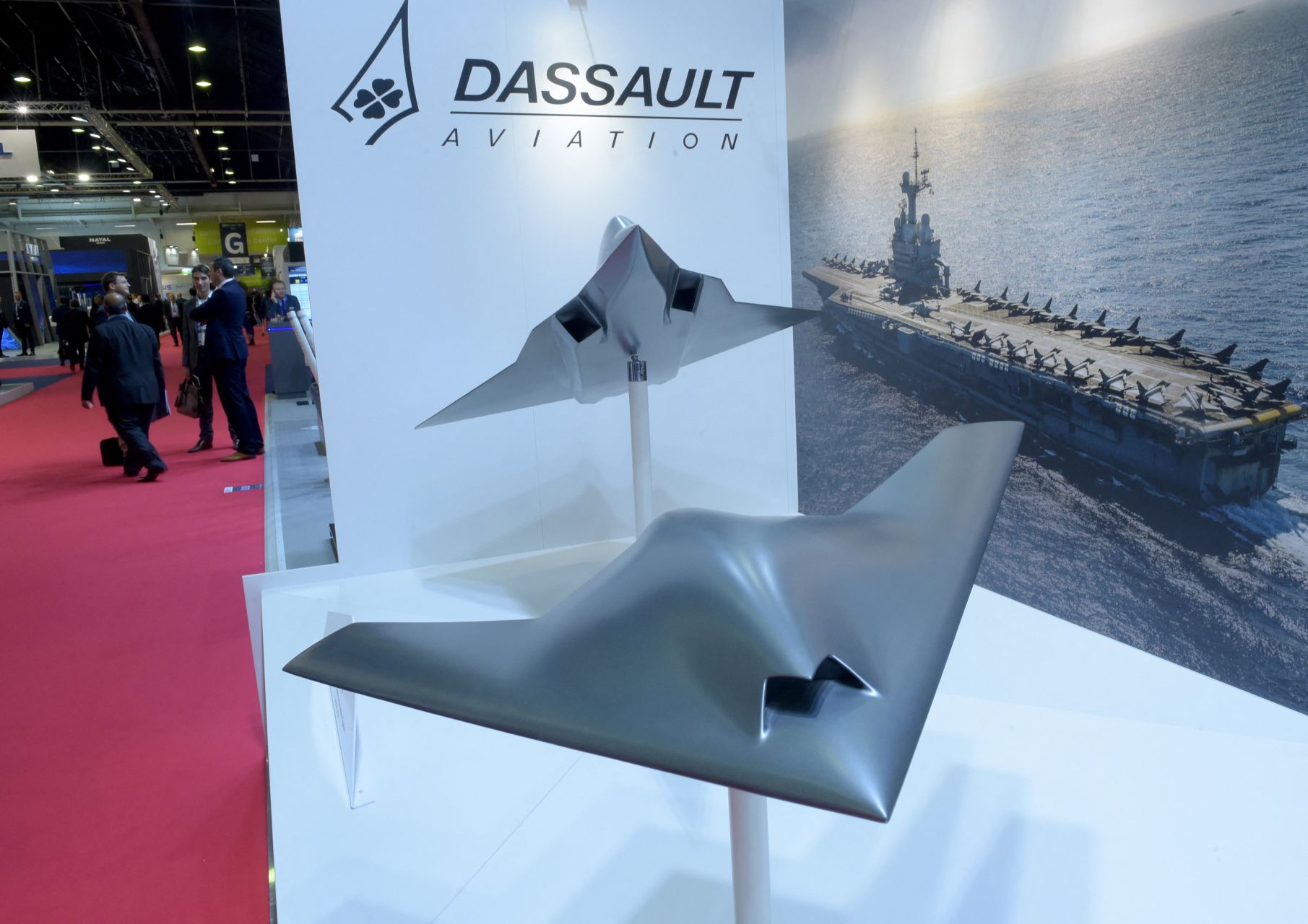- Home
- Middle East
- Drones in the Spotlight at Euronaval Despite Geopolitical Tensions

Airbus Naval Aerial drone system for navy. ©ERIC PIERMONT / AFP
Combat drones, sea surveillance drones, seabed drones: used in current conflicts, they'll be all over the stands at next week's Euronaval international defense show near Paris.
The biennial exhibition will host 500 exhibitors from November 4 to 7 in Villepinte, north of the French capital, amid a tense geopolitical climate where the industry is expected to offer rapid solutions for navies engaged in current conflicts and protecting sensitive areas.
Following a controversy sparked by the French government’s ban on showcasing weapons used in Gaza and Lebanon, Israeli companies have ultimately been allowed to participate in Euronaval by a French court decision.
"This exhibition comes at a new international juncture, particularly at sea, where European fleets and the French navy are engaged in high-intensity conflicts—a situation we haven't seen in a long time," explains Pierre-Eric Pommellet, CEO of the French company Naval Group.
In addition to conflicts in Ukraine and the Middle East, where the use of drones has changed the nature of naval combat, it is essential to protect goods transported by sea—comprising 90% of global trade—as well as internet exchanges, with 99% passing through underwater cables.
In this context, naval drones are becoming increasingly critical.
"With what’s happening in the Black Sea, the Red Sea, and Southeast Asia, navies are now focused on the present and seeking to boost their combat capacity," Admiral Eric Chaperon, defense advisor for Thales, a French high-tech group specializing in defense, told AFP.
To counter Houthi attacks on maritime traffic in the Red Sea, “extremely advanced, costly missiles are being fired at low-cost drones," he notes. "This system is unsustainable," adds the admiral.
Thales will present "short-term solutions that are rapidly available" at the exhibition, even as the defense industry typically operates on long development cycles, often up to 15 years from concept to completion.
Drone technologies, in particular, are evolving much faster than those related to submarines.
Israel Present, Ukraine Absent
After an initial ban by the French government on attending the exhibition or displaying weapons used in the Gaza and Lebanon conflicts, Israeli companies were eventually granted entry through a French court ruling on Wednesday.
Israeli Foreign Minister Israel Katz welcomed the decision, calling it "a clear message against attempts to weaken Israel in its fight against the forces of evil."
In late May, Israeli defense companies were initially barred from attending the Eurosatory defense exhibition due to an Israeli offensive in Gaza but were later allowed entry by court order.
Absent from the exhibition, however, will be Ukraine, which has destroyed several Russian ships with naval drones and missiles.
"We offered (Ukrainian companies) free space. But unfortunately, due to organizational reasons, they declined," said Hugues d'Argentré, the general director of Euronaval.
Olga Nedbaeva, with AFP
Read more



Comments